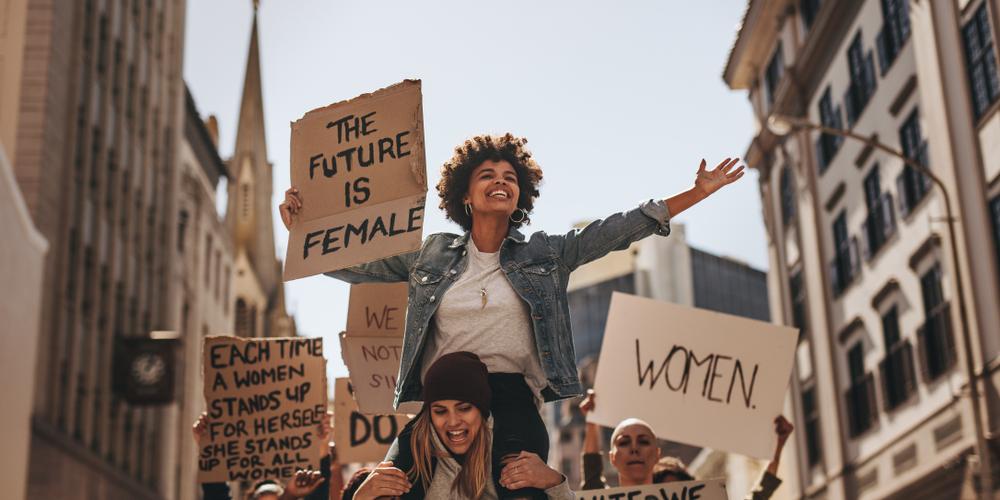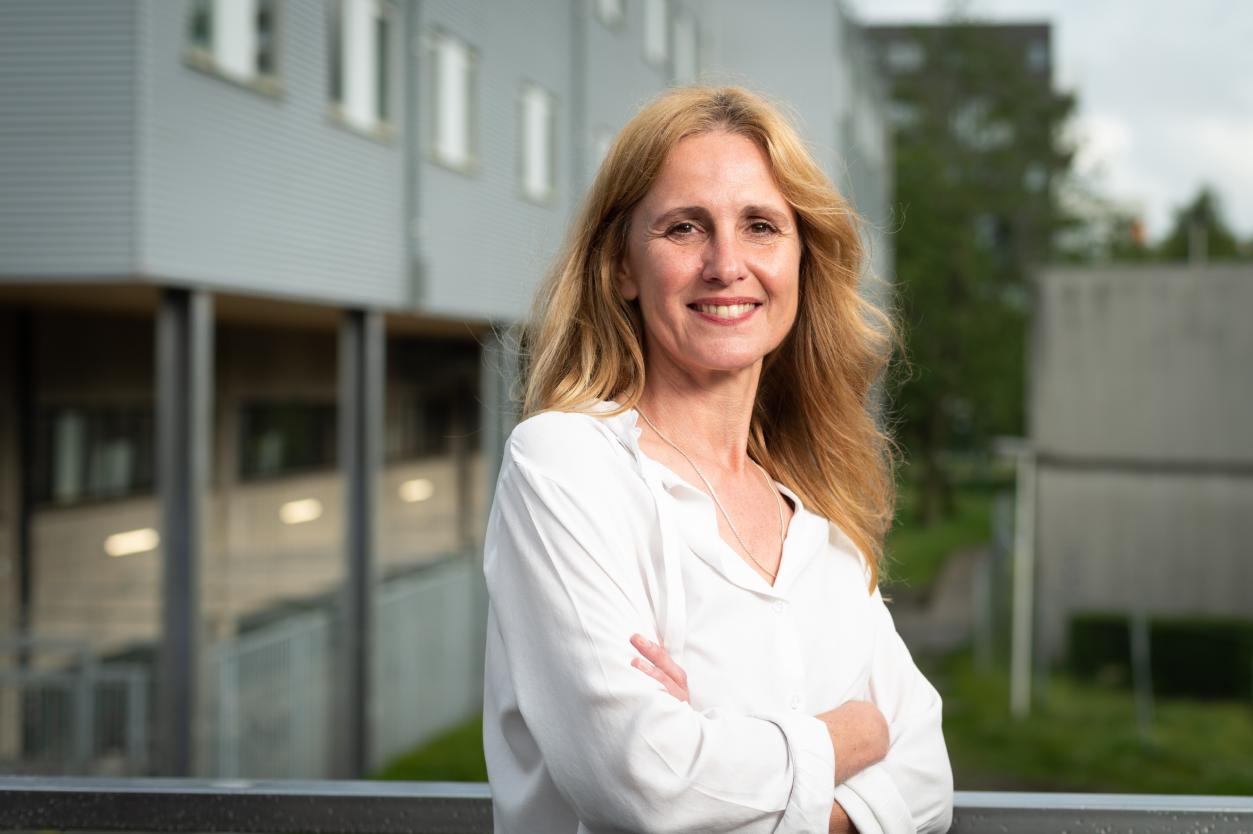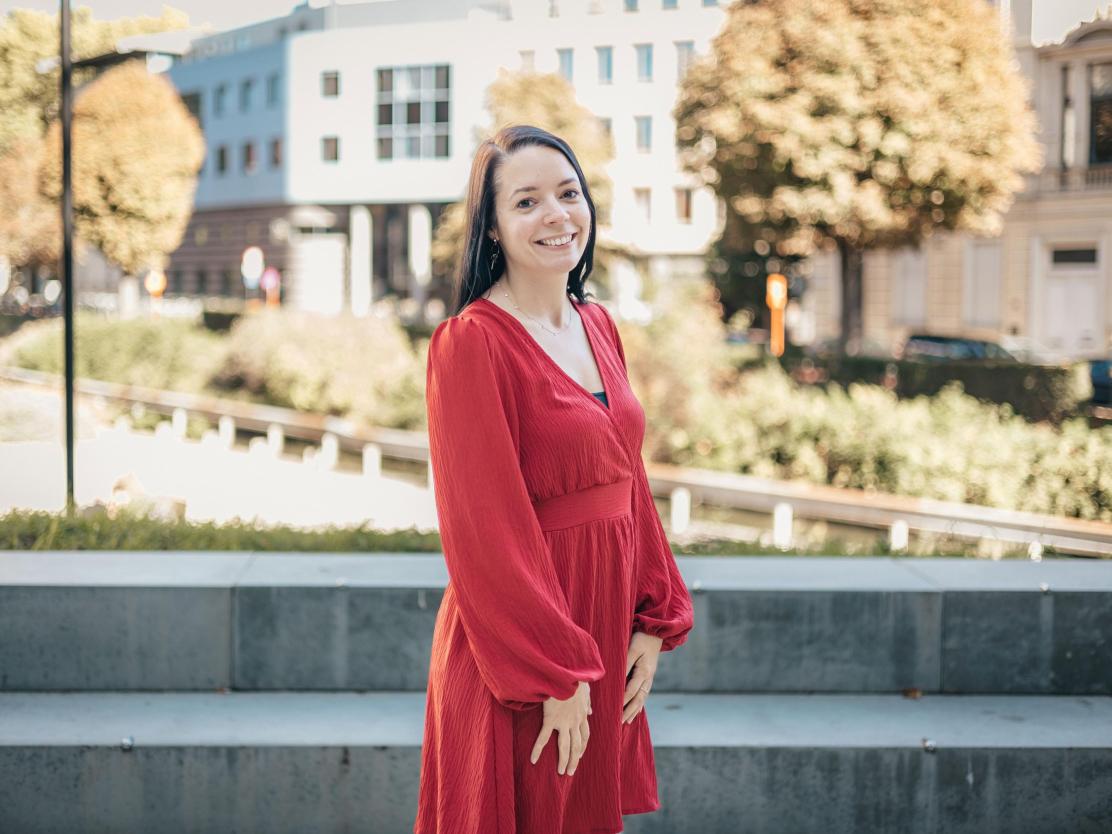
On 7 March, on the eve of International Women’s Day, the VUB hosted a high-profile debate featuring five female heavyweights from Flemish and federal politics. The theme of the evening was gender equality in elections. Co-moderator and professor of political science Karen Celis presented the politicians with gender-related topics, such as abortion and violence against women. The political representation of women is also the research area of Karen’s colleague Robin Devroe.
The political leaders discussed a variety of gender-related topics during the debate. Are there election subjects that particularly concern women and influence their voting behaviour?
Robin: “It’s dangerous to reduce an issue to a women’s issue. Until a few years ago, it was common to categorise themes in this way, even in literature. However, any subject or policy area contains aspects that are important to both men and women. For instance, childcare isn’t just a women’s issue. Women are predominantly responsible for the upbringing and care of children, but it’s also important for men, as they are equally involved in how a family balances its work and private life. More often than not, the interests of women and men are very much aligned.”
Karen: “On the other hand, some issues that concern women more directly do struggle to make it onto the political agenda. Take the issue of violence against women in public spaces. This is a real concern in society; think of the Balance Ton Bar initiative, where young women stood up for safety in nightlife. Yet such issues hardly ever become an election issue, even though it’s an issue that concerns people. At the VUB debate, we will ask politicians to speak about topics like this that have a clear gender dimension. Of course, all political parties are against violence towards women. But what actions will they take? Is it a priority? How do they plan to support victims? What about punishing the perpetrators? Only by understanding their positions on these issues can we allow these topics to play a role when we cast our votes.”
Robin: “Just because these issues have a gender dimension doesn’t mean they don’t concern men. Men are not always safe either – consider violence against homosexual men. Men also worry about the safety of their girlfriends or daughters when they’re out at night. Ensuring that everyone can walk safely down the street at night is a concern for us all. It’s part of how we shape our society.”

Karen Celis
Why aren’t these issues on the political agenda?
Karen: “We’re dealing with a historical legacy. The political fault lines between church and state, labour and capital and community that shaped traditional political parties in the late 19th century still determine the political agenda. It’s apparently very difficult to change that agenda.”
“When women’s rights are undermined, democracy is undermined.”
If citizens are concerned about these topics but politicians ignore them, could this be a reason why people feel disconnected from politics?
Karen: “Politicians’ lack of attention to issues that concern large groups of citizens certainly contributes to the divide between the public and politics. I don’t think citizens will consciously say they’re uninterested in politics because politicians pay too little attention to women’s issues, but it is likely an unconscious mechanism. Consequently, politics loses relevance for many groups of voters. This is something we need to break through. With this debate, we’re aiming to raise politicians’ awareness and urge them to address the electorate’s concerns. Voters want politicians to serve the citizenry, and that’s something they don’t currently feel.”
Robin: “It’s not a narrative of us versus them, or a story that concerns only a specific group. The inclusion or exclusion of certain topics affects us all and ultimately speaks volumes about the quality of our democracy.”
Karen: “There’s an international trend where, in countries led by anti-democratic parties, women’s rights such as the right to abortion are under threat. Where women’s rights are attacked, democracy itself is eroded. That’s why we must be extremely vigilant about what’s happening in this area.”
During the last legislative period, figures like Gwendolyn Rutten and Petra De Sutter testified about the macho culture in politics. The fact that politics itself is an unsafe environment for women – isn’t that detrimental to the image of politics?
Robin: “I must stress that we have lots of strong female politicians, women who are doing important work and who truly serve as role models for young girls and women in society. But research indeed shows that it is still very difficult for women to survive in politics. This may lead to female voters finding less connection with that world or reinforcing the belief that politics is not for them.”
Karen: “Addressing this issue is crucial not only for the affected female politicians but also from a democratic standpoint. Politics must be a place where diverse individuals have a place and can impact decision-making.”
“Women vote for both women and men much more often.”
Do women tend to vote for women more frequently?
Karen: “No, women actually vote more often for both women and men, whereas men tend to vote more for men.”
Robin: “However, there are specific groups of women who consciously vote for multiple women. These are often highly educated women with extensive political knowledge and interest who deliberately give their vote to women. But this doesn’t apply to all women.”
Karen: “By voting this way, either by explicitly voting for women or by evenly distributing their votes between men and women, women contribute to greater gender equality in parliament, as research has shown. However, it’s important to remember that the ultimate distribution of men and women who sit in parliament is largely determined by the political parties themselves. They decide who leads and who anchors the electoral list and who is prominently featured in the campaign. It’s not solely the responsibility of the voters. Political parties are rightly called the gatekeepers of politics.”

Robin Devroe
BIO
Karen Celis is head of the Democratic Futures (DFUTURE) research group and co-chair of the RHEA Centre of Expertise on Gender, Diversity and Intersectionality. Her research focuses on the quality of democracy and how to improve it.
Robin Devroe is a postdoctoral researcher affiliated with DFUTURE. Like Karen, she studies the political representation of various social groups. Together, they are conducting research on women’s representation within the scope of an ERC Synergy project.